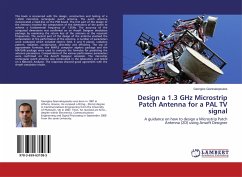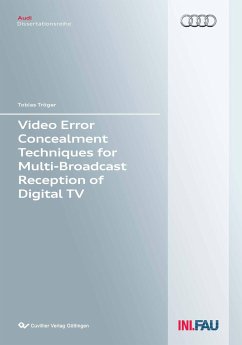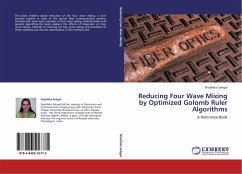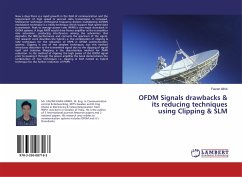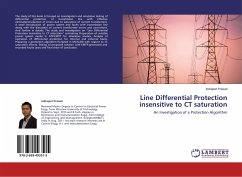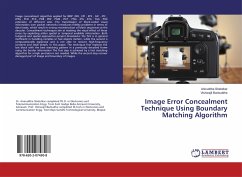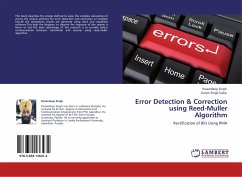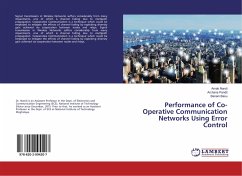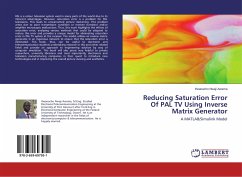
Reducing Saturation Error Of PAL TV Using Inverse Matrix Generator
A MATLAB/Simulink Model
Versandkostenfrei!
Versandfertig in 6-10 Tagen
27,99 €
inkl. MwSt.

PAYBACK Punkte
14 °P sammeln!
PAL is a colour television system used in many parts of the world due to its inherent advantages. However, saturation error is a problem for PAL televisions. This leads to unwarranted picture darkening. This problem arises due to poor transmission condition or receiver transistor and/or amplifier microscopic malfunction. Thus, this work highlights the effects of saturation error, analysing various methods that could be adapted to reduce this error and provides a unique model for eliminating saturation error in PAL TV system at the receiver. The model utilizes an inverse matrix generator in an ...
PAL is a colour television system used in many parts of the world due to its inherent advantages. However, saturation error is a problem for PAL televisions. This leads to unwarranted picture darkening. This problem arises due to poor transmission condition or receiver transistor and/or amplifier microscopic malfunction. Thus, this work highlights the effects of saturation error, analysing various methods that could be adapted to reduce this error and provides a unique model for eliminating saturation error in PAL TV system at the receiver. The model utilizes an inverse matrix generator in an ingenious network to ensure that the saturation error is eliminated. This book, thus, can be useful to electronic and telecommunication students undertaking research in this and other related fields and provide an approach to engineering solution by way of computer simulation. This book will also prove very helpful to private researchers, university librarians and most importantly, electronics and television manufacturing companies in their quest to introduce new technologies and in improving the overall picture viewing and aesthetics.



